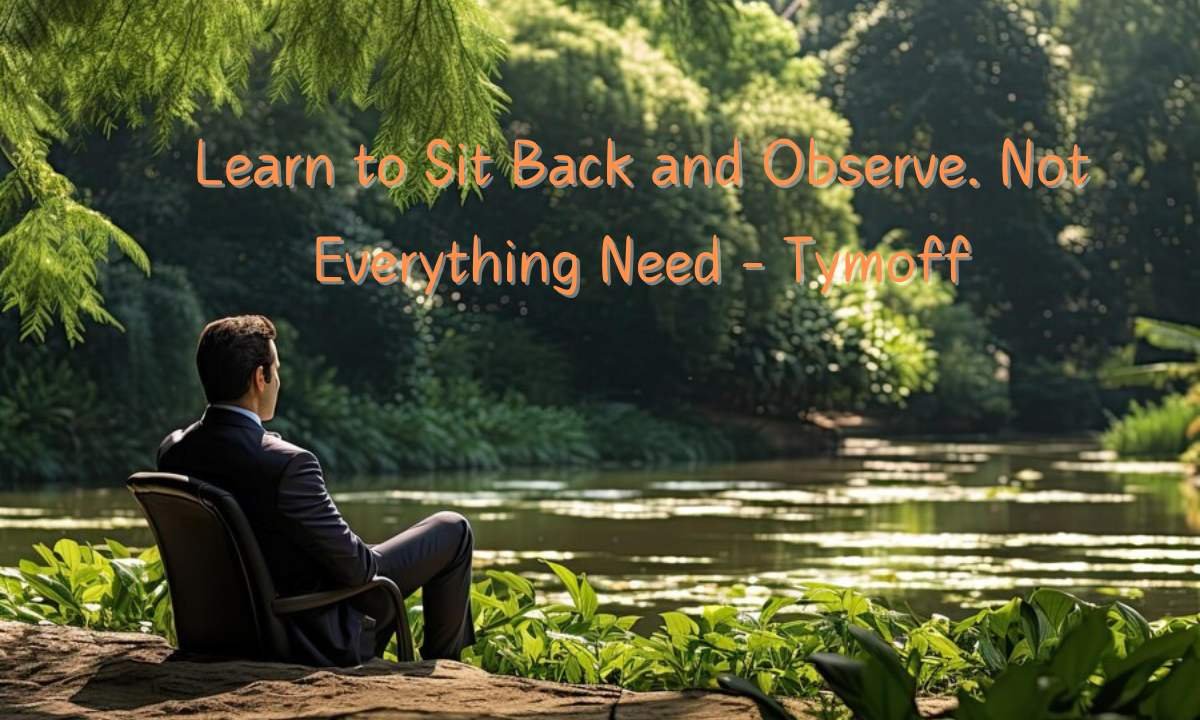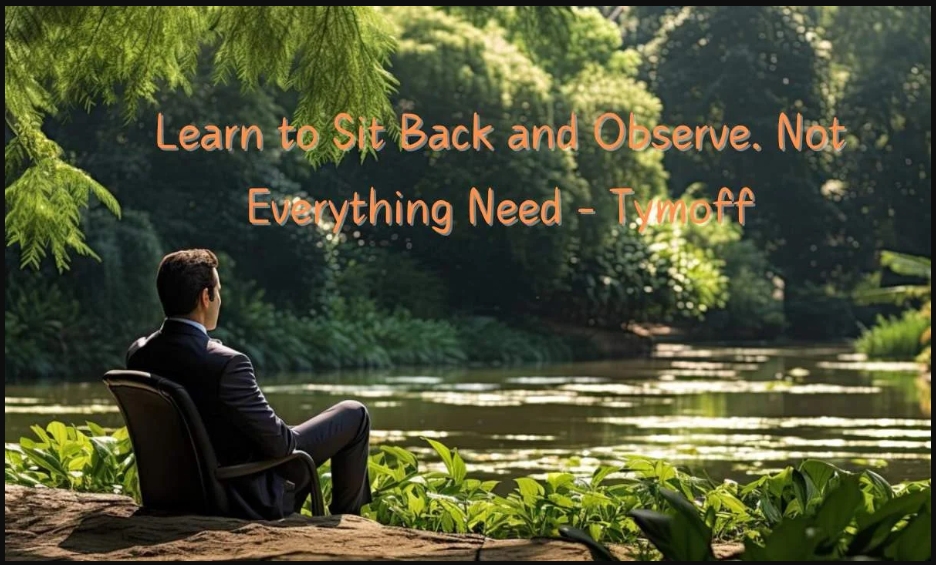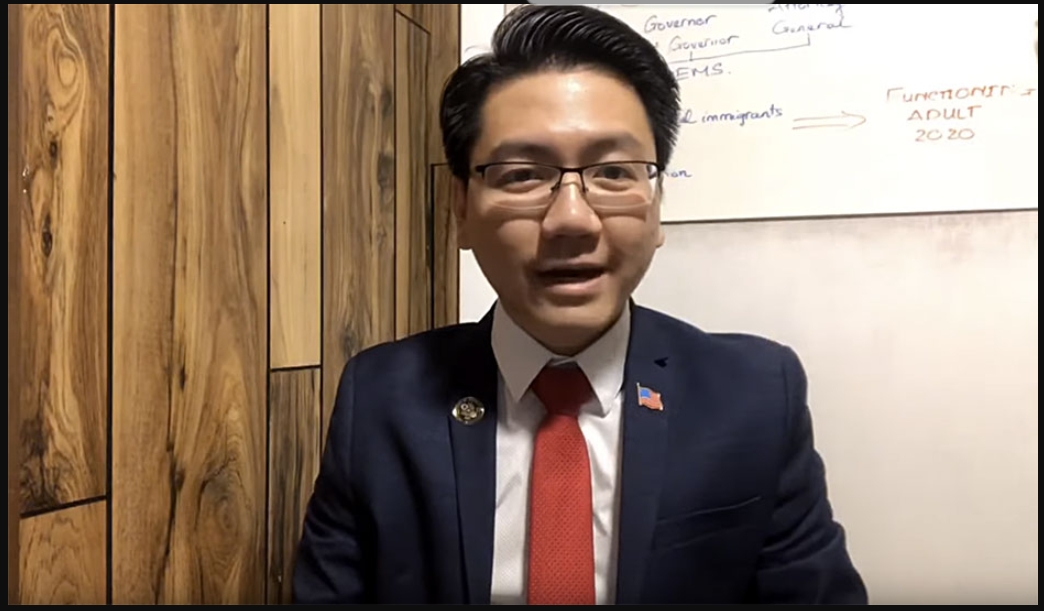洗稿以下文章,去除AI生成痕迹,文章添加个人情感观点,文章开头不要出现Introduction,文章末尾不要出现”Conclusion”,Markdown格式输出:
Embracing the Power of Observation: Learning to Sit Back and Observe
Our world today is filled with an overwhelming flow of information, endless opinions, and an ever-present urgency to respond. But sometimes, the most insightful action we can take is to pause and simply observe. This idea is beautifully encapsulated in the phrase, “learn to sit back and observe. not everything need – tymoff.” It’s a reminder that observation can be transformative, bringing clarity, fostering empathy, and enhancing our understanding of ourselves and others.
Reacting vs. Observing
Why do we often feel compelled to react immediately? Our tendency to react stems from a mix of evolutionary survival instincts and social pressures. Our ancestors needed quick responses to survive, and this fight-or-flight impulse still lingers. Social conditioning, too, reinforces the idea that we should always have a stance or voice an opinion. Pair this with today’s constant notifications and news updates, and it’s no wonder our minds feel overstimulated. Yet, I’ve found that in moments where I’ve resisted the urge to react and instead observed, there’s a sense of calm and control that’s far more satisfying than any reactive response.

The Benefits of Stepping Back
Embracing an observer’s mindset can lead to profound shifts in how we handle situations and perceive our surroundings.
1. Clarity and Stress Reduction
Taking a moment to observe rather than react helps us avoid emotional responses that might lead to regret. I’ve noticed that stepping back can bring a calmness that allows me to assess situations from a more balanced viewpoint. This space to breathe can be invaluable, especially in moments of tension, as it opens up a pathway for clearer thinking.
2. Fostering Empathy and Understanding
In the rush to respond, we sometimes overlook subtle details. When we pause to observe, we begin to see the whole picture — body language, tone, emotions hiding behind words. This practice of truly “seeing” others helps build empathy, bridging gaps in our understanding of each other and helping us connect on a deeper level.
3. Better Communication
Effective communication is more than just speaking; it’s about truly understanding the other person. I’ve found that by listening and observing without rushing to form a response, I can engage more meaningfully. This thoughtful approach allows for responses that resonate with others, fostering genuine dialogue.
4. Gateway to Self-Discovery
Observation extends inward, too. As I become more adept at observing the world, I also gain insights into my own patterns, triggers, and emotions. This self-awareness is powerful, allowing me to recognize and adjust behaviors that might not serve me well.
5. Cultivating Patience and Emotional Intelligence
Observation is closely tied to patience. In a society that celebrates quick wins, the act of waiting and watching is deeply enriching. By observing without rushing to conclusions, we strengthen our emotional intelligence, learning to handle complex situations with greater composure.
Developing an Observer Mindset
Building this mindset means stepping back from the urge to control outcomes. Imagine you’re a silent witness to unfolding events, noting the details and reserving judgment. This approach has taught me to appreciate moments more deeply, paying attention to sights, sounds, and the emotions they stir.
Tips to Cultivate Observation:
- Minimize Distractions: Put aside your phone, quiet your mind, and engage fully.
- Embrace Curiosity: Approach situations with a desire to understand rather than judge.
- Recognize Biases: Acknowledge any biases that might color your observations and set them aside to see things objectively.
Reflecting Through Journaling
Journaling is a powerful tool for solidifying observations. I often use journaling to revisit events of the day, reflect on moments that stood out, and recognize patterns in my thoughts and behaviors. Prompts like “What did I notice today that surprised me?” or “How did a recent observation challenge my assumptions?” provide a space for introspection and growth.

Observation in Daily Life
Observation isn’t limited to personal growth; it can transform our interactions and decisions.
- Workplace Dynamics: By observing colleagues’ interactions, I gain insights into team dynamics and learn to navigate relationships with more awareness.
- Relationships: In close relationships, observation helps me recognize my partner’s unspoken needs, leading to a stronger connection.
- Conflict Resolution: Observing during conflicts allows for a calm, non-reactive approach, creating space for understanding and resolution.
The Ripple Effect of Observation
The act of observing doesn’t just benefit us; it enriches our relationships, communities, and even society as a whole. When we prioritize understanding over reaction, we foster empathy and respect, creating a ripple effect that encourages others to do the same.
- Strengthened Relationships: Taking the time to observe strengthens bonds, allowing for deeper communication and trust.
- Community Connection: When leaders and individuals observe the needs of their communities, they are better positioned to address genuine issues, promoting a sense of unity.

Embracing a Mindful Life
“Learn to sit back and observe. Not everything need” is more than advice; it’s a way of life that encourages us to savor the moment and respond from a place of awareness. Life is filled with fleeting, beautiful moments that often go unnoticed. By choosing to observe, we give ourselves the chance to appreciate these moments fully.





